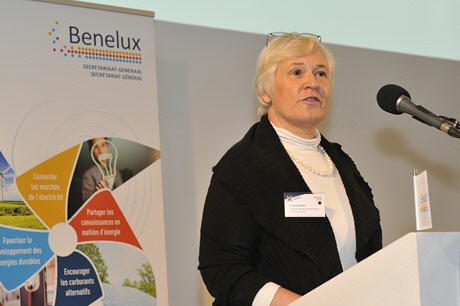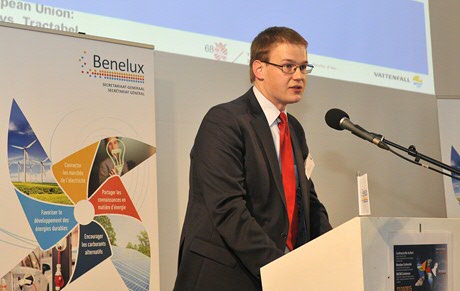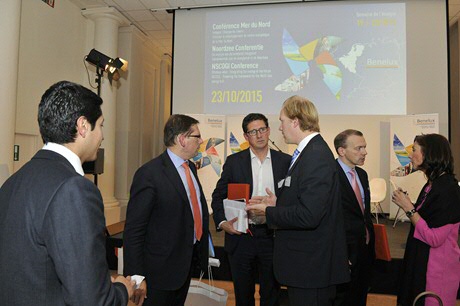Groningen Centre of Energy Law present at the NSCOGI Conference
The Groningen Centre of Energy Law was represented by Prof. Martha Roggenkamp and Joris Gazendam LLM at the NSCOGI Conference on Friday 23 October 2015 in Oostende (BE). The NSCOGI Conference was the concluding event of the Benelux Energy Week that was organised by the Benelux.
Martha Roggenkamp gave a presentation on the opportunities for a special legal status for the offshore electricity grid compared to harmonization of national rules of the North Sea countries. This presentation was based on the PhD research of Hannah Müller that was finished in September 2015 at the University of Groningen. (https://intersentia.com/en/shop/professioneel/a-legal-framework-for-a-transnational-offshore-grid-in-the-north-sea.html)
The presentation of Joris Gazendam was based on the research of the TKI Synergies at Seas study. He advocated the necessity of taking the first step in the actual construction of the offshore grid in the North Sea.
More information can be found on this website .



This article was published by the Faculty of Law.
More news
-
08 December 2025
Colourful Characters: Bert Röling
